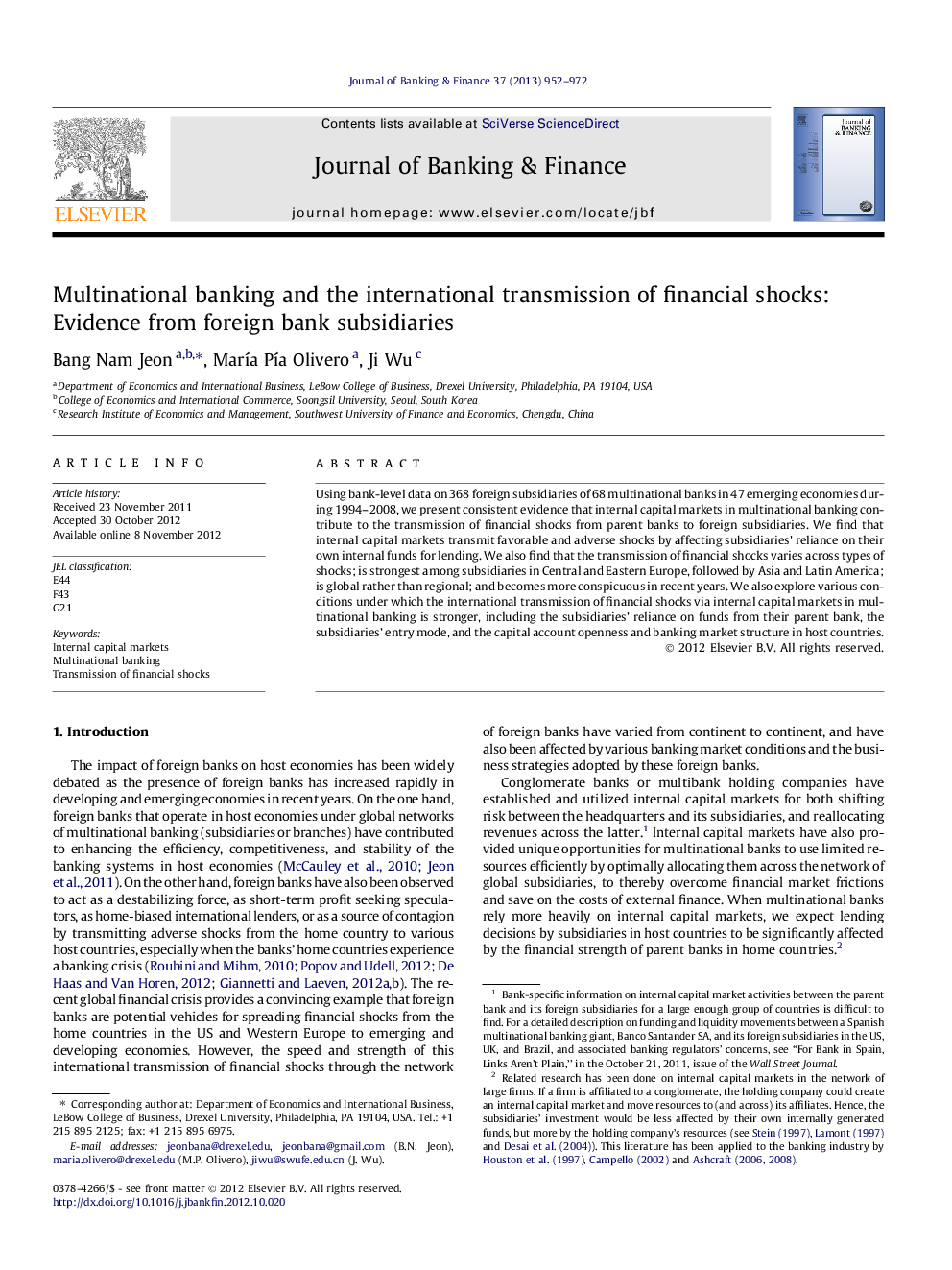| Article ID | Journal | Published Year | Pages | File Type |
|---|---|---|---|---|
| 5089582 | Journal of Banking & Finance | 2013 | 21 Pages |
Using bank-level data on 368 foreign subsidiaries of 68 multinational banks in 47 emerging economies during 1994-2008, we present consistent evidence that internal capital markets in multinational banking contribute to the transmission of financial shocks from parent banks to foreign subsidiaries. We find that internal capital markets transmit favorable and adverse shocks by affecting subsidiaries' reliance on their own internal funds for lending. We also find that the transmission of financial shocks varies across types of shocks; is strongest among subsidiaries in Central and Eastern Europe, followed by Asia and Latin America; is global rather than regional; and becomes more conspicuous in recent years. We also explore various conditions under which the international transmission of financial shocks via internal capital markets in multinational banking is stronger, including the subsidiaries' reliance on funds from their parent bank, the subsidiaries' entry mode, and the capital account openness and banking market structure in host countries.
⺠We use global bank-level data and present evidence on internal capital markets. ⺠We show that internal capital markets contribute to financial shock transmission. ⺠The shock transmission from parents to foreign subsidiaries varies by shock types. ⺠The transmission is global rather than regional and strongest in Eastern Europe. ⺠We identify various conditions that strengthen the shock transmission mechanism.
